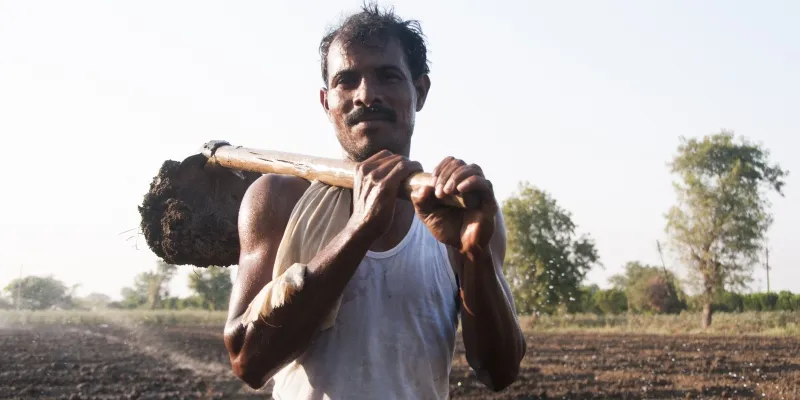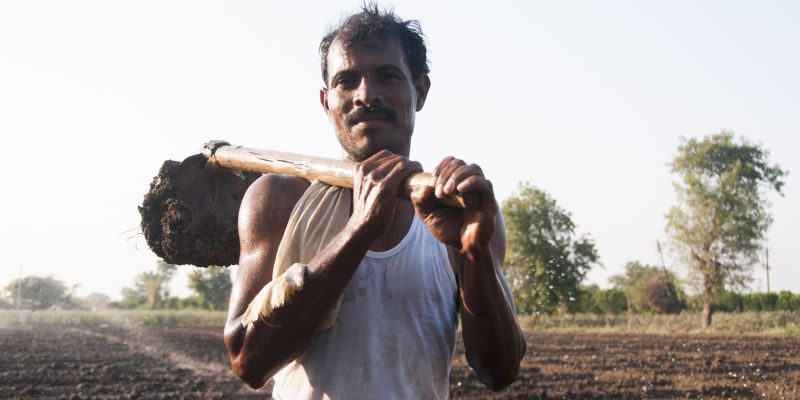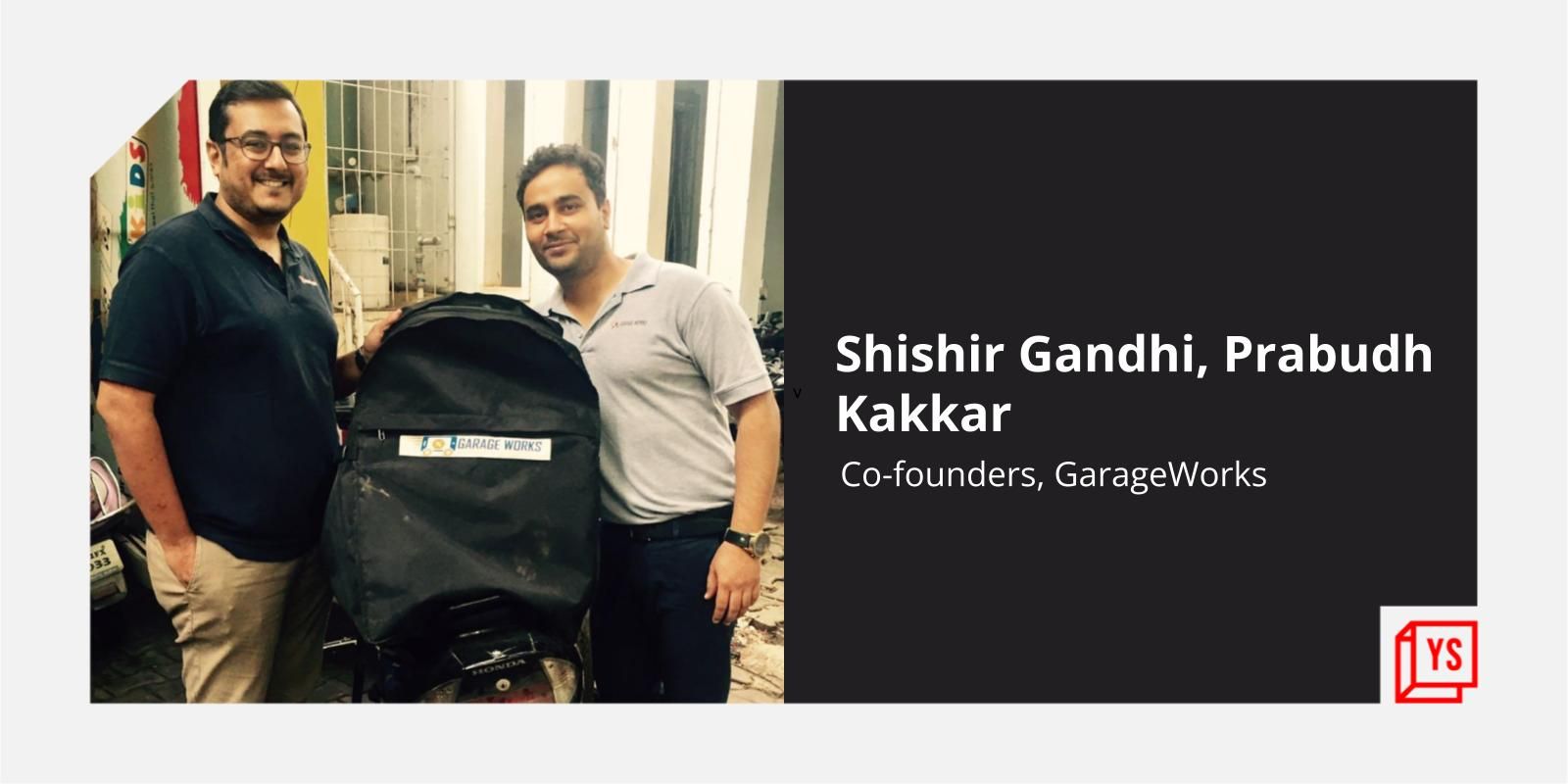Most demands conceded, Maharashtra farmers call off strike
Maharashtra's striking farmers on Sunday said they will withdraw their 12-day-old strike as the State government had accepted, in principle, a majority of their demands, including loan waiver and crop loans for the current season.
Farmers' leaders indicated that the formal withdrawal of the strike could be made after discussions with leaders of the Kisan Kranti later in the day.
Raju Shetti, chief of Swabhimani Shetkari Sanghatana -- an ally of the ruling BJP in Maharashtra, announced that a sit-in planned for Monday outside collectorates and Revenue Department offices, and Tuesday's rail and road blockades programme across the state stand suspended.
The developments came after a marathon meeting between a six-member Group of Ministers set up by Chief Minister Devendra Fadnavis on Friday and leaders of major farmers' organisations on Sunday afternoon at Sahyadri Guest House here.
"The government and farmer representatives reached a consensus (on the demands) after discussions. Farmers have called off the strike," Fadnavis tweeted on Sunday.
The conditions and details of the farm loan waiver will be finalised by a joint committee comprising government officials and farmers, he added.
Loans of small and marginal farmers have been written off with immediate effect, Revenue Minister Chandrakant Patil said.
Patil, who led the discussions on behalf of the six-member Group of Ministers set up by Fadnavis two days ago, said details will be announced by July 25.

From June 1, over half a million farmers across Maharashtra, barring coastal Konkan, went on an unprecedented strike, marred by several violent incidents.
Major cities like Mumbai, Thane, Navi Mumbai, Pune, Nashik, Nagpur and others felt the pinch of the strike as shortages loomed large, coupled with spiralling prices of essentials like milk, fresh fruit, vegetables, and even food grain.
The farmers' demands included waiver on farm loans, free electricity, appropriate remunerative prices for their produce, grants for irrigation, pension for farmers aged 60 years and above, and implementation of the M.S. Swaminathan Committee recommendations.
All India Kisan Sabha state General Secretary Ajit Nawale said though the farmers demands have been accepted, "we must remain alert till the government fully implements its assurances".
Fadnavis said the government has agreed to hike the milk prices and cooperatives will have to share profits in the ratio of 70:30 on the lines of sugar cooperatives.

Madhya Pradesh Chief Minister Shivraj Singh Chouhan on Sunday ended his day-old indefinite fast which he started here for the restoration of peace in his state rocked by violence during a farmers' agitation.
He announced a series of decisions aimed at the welfare of the state's farmers, including buying of all crops on Minimum Support Prices, purchase of milk as per Amul Dairy's formula, and setting up of farmers markets in Madhya Pradesh to save them from the clutches of middlemen.
Veteran journalist P. Sainath on Sunday described farm loan waiver as a relief but not a solution to agrarian crisis, and accused the Modi government of not fulfilling its poll promise of implementing M.S. Swaminathan's recommendations.
"It is very important to understand that the protests across the country by the farmers is not about loans or loan waivers as there are far more serious issues," Sainath said.
"The loan waiver is a tool, but not a transformation. They are a mechanism but not a solution. They are a relief but not an answer," he said.
In remarks broadcast on YouTube channel, Sainath, who has written extensively on the Indian agricultural sector, took a dig at Modi government.
"The BJP manifesto promised to implement the Swaminathan Report. But after coming to power, in the Supreme Court, they submitted an affidavit saying this cannot be done. The government did not give any explanation why it lied to the people and the nation."
He criticised Chief Ministers Shivraj Singh Chouhan of Madhya Pradesh and Devendra Fadnavis of Maharashtra for not having a dialogue with the farmers earlier.
"Both the CMs refused to speak with the farmers in the earlier stage of the protests, which angered the farmers," he said.
Agricultural expert Devinder Sharma said the government did not want more income to farmers since it was not in tune with its economic reform policies.
"Over the years, the government has deliberately impoverished the agriculture sector. Our economic policymakers are pushing people in agriculture to cities to get cheaper labour for industrial infrastructure and to keep food prices low so inflation does not increase," Sharma contended.
Pointing out that heavy use of chemicals and industrialisation in the aftermath of the Green Revolution spoiled the farming sector, noted economist H.M. Desarda said that political parties used farmers for short political gains at the cost of long-term ecological sustainability











